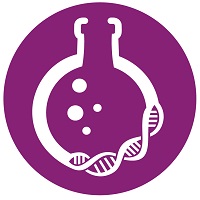Bioanalytics
Recommended Practices in Enzymatic Assay Design, Validation, and Long-Term Maintenance to Support Bioanalysis
Monday, October 21, 2024
9:00 AM - 9:30 AM MT
Location: 151 ABCG

Catherine Vrentas, PhD, MBA, MPH (she/her/hers)
Life Sciences Lead
Booz Allen Hamilton
Richmond, Virginia
Speaker(s)
Clinical applications in gene therapies and enzyme replacement therapies for inborn errors of metabolism often necessitate bioanalytical measurements of enzymatic activity in serum, plasma, tissue homogenates, and other biological samples. However, these assays are complex in their design, vary in their contexts of use, are sensitive to numerous environmental variables, and can be designed via numerous approaches. As gene therapies under development continue to grow in number, the need for enzymatic analysis is expected to grow as well. In this context, a group of industry authors came together to compile promising practices and recommendations for enzymatic assay design, optimization, and validation, which will serve as the basis of this presentation. First, this presentation will outline some of the typical contexts of use for enzymatic assays for bioanalysis. Next, principles of enzymatic assay development and options for assay design will be outlined in the context of relevant literature. Third, recommendations and considerations for enzymatic method validation will be discussed. Finally, approaches for long-term maintenance of assay performance, especially in the context of long-duration gene therapy trials, will be presented.
Learning Objectives:
- Identify key design considerations for the development of enzymatic assays for bioanalysis.
- Describe multiple examples of contexts of use for enzymatic assays in bioanalysis.
- Identify key considerations for validation of enzymatic methods, including options and recommendations for assessment of accuracy and precision, matrix interferences, stability, and specificity.
- Identify multiple strategies that can be used to increase enzymatic assay robustness as well as consistency across long trial durations, as well as strategies commonly used for critical reagent maintenance.

